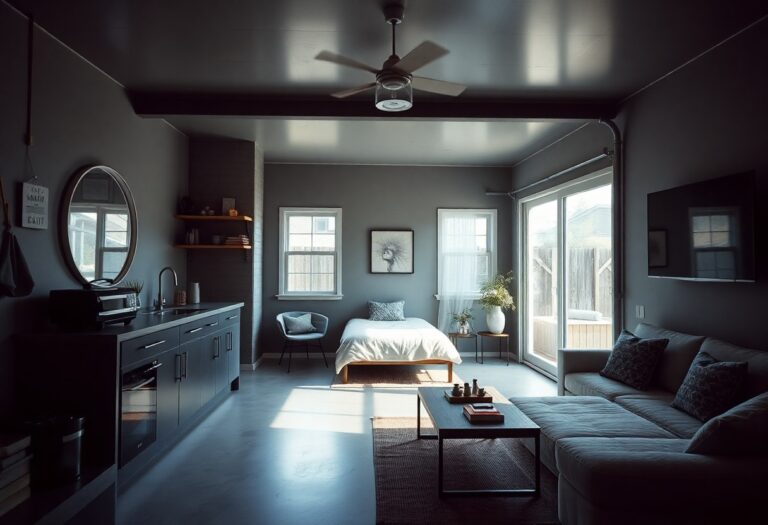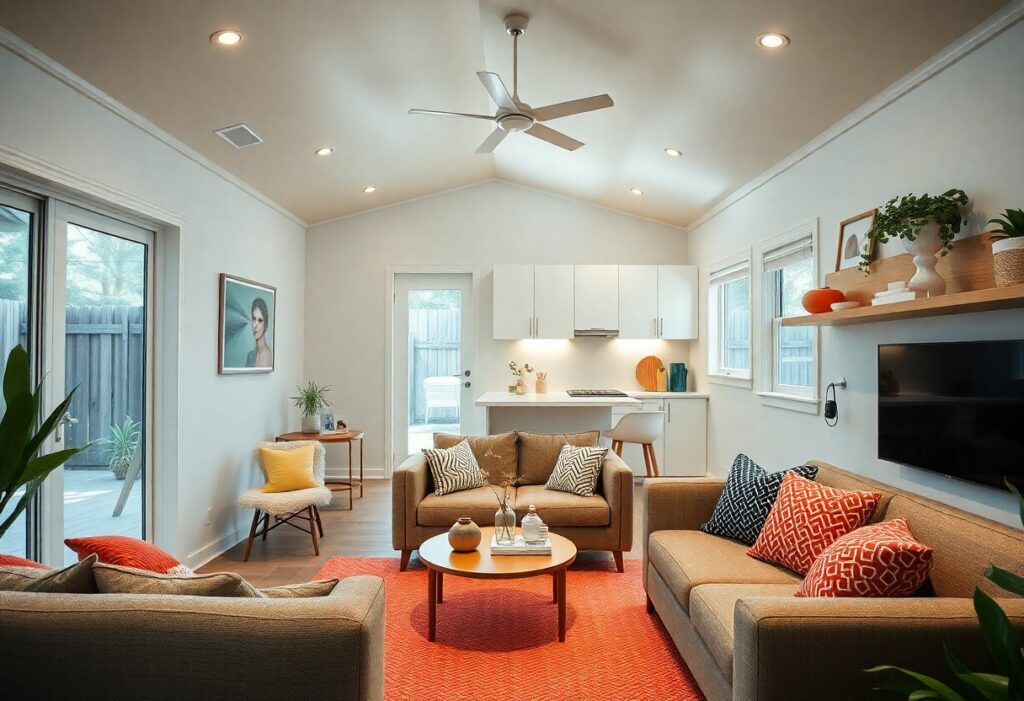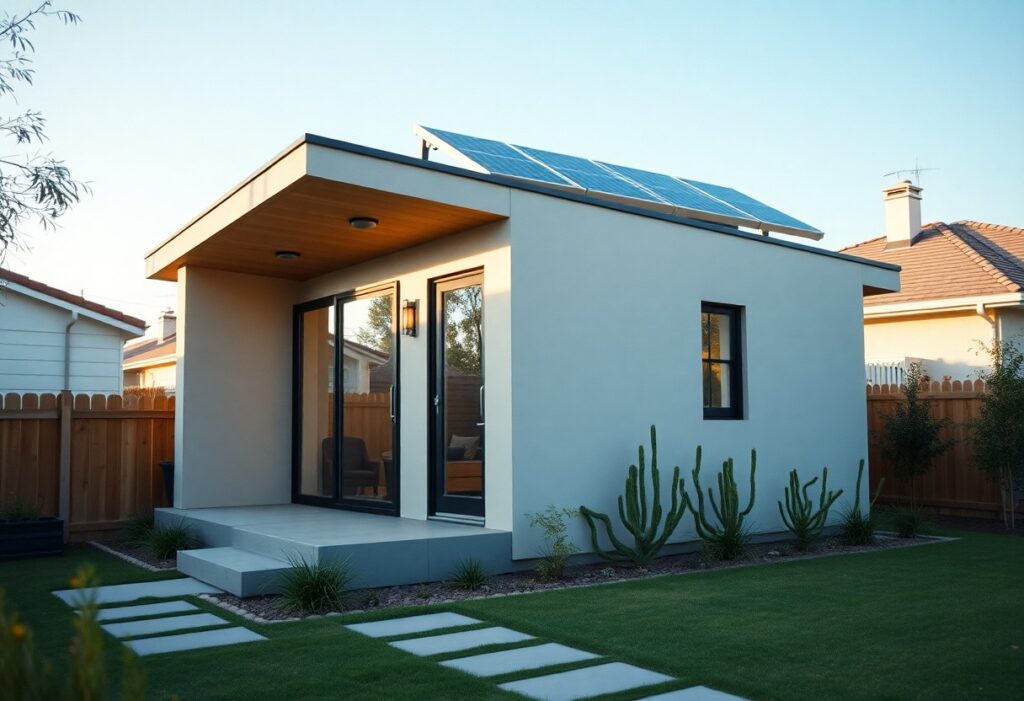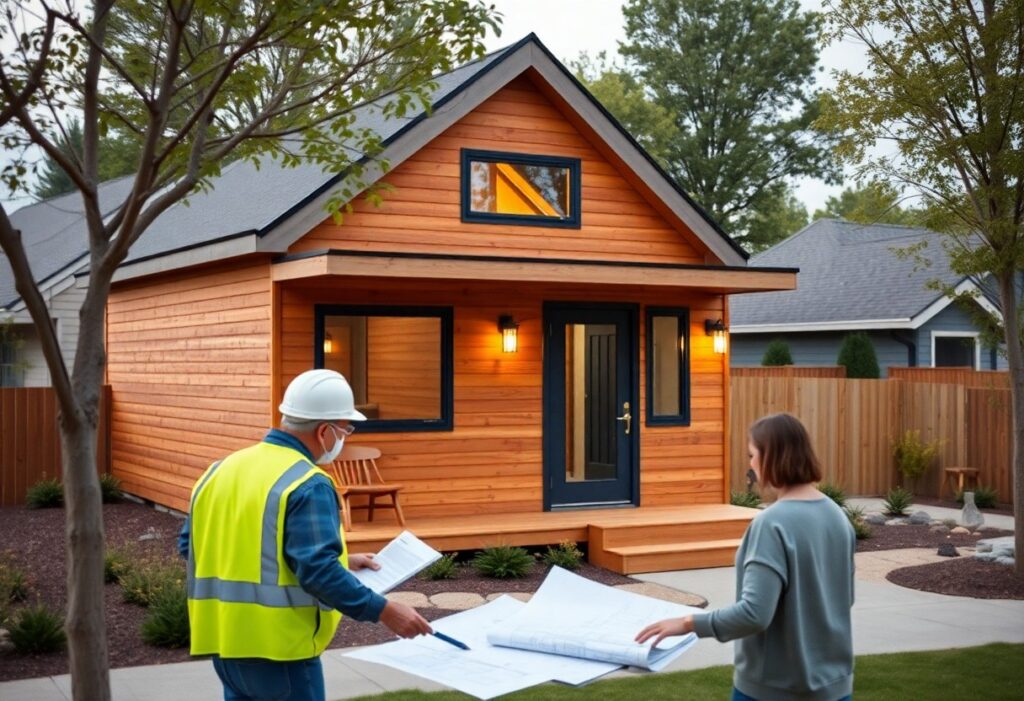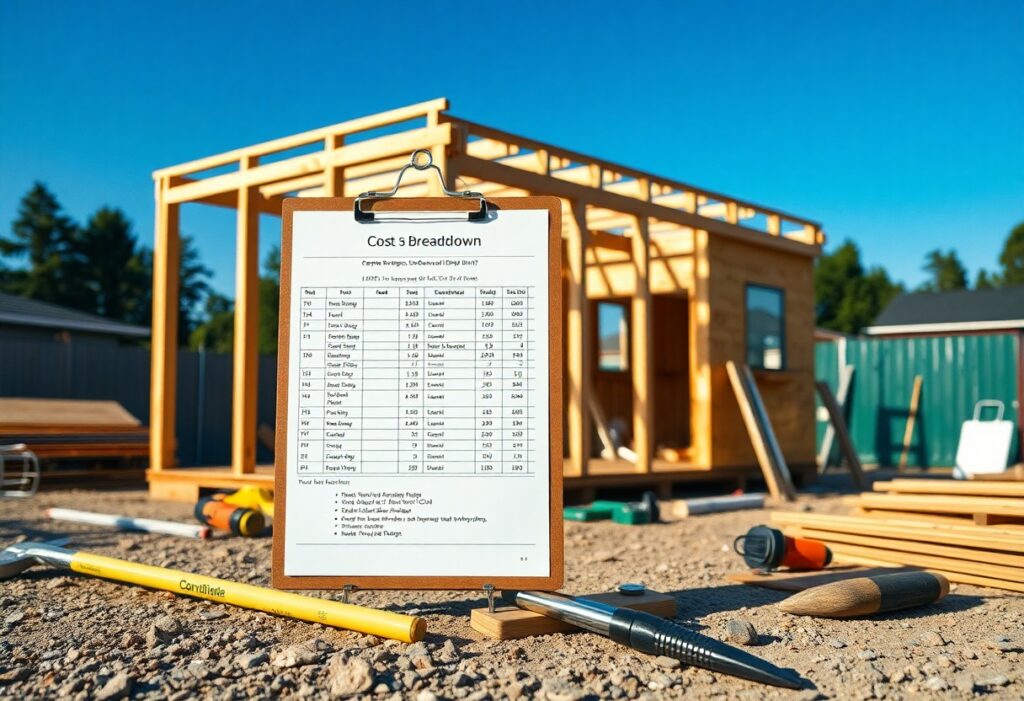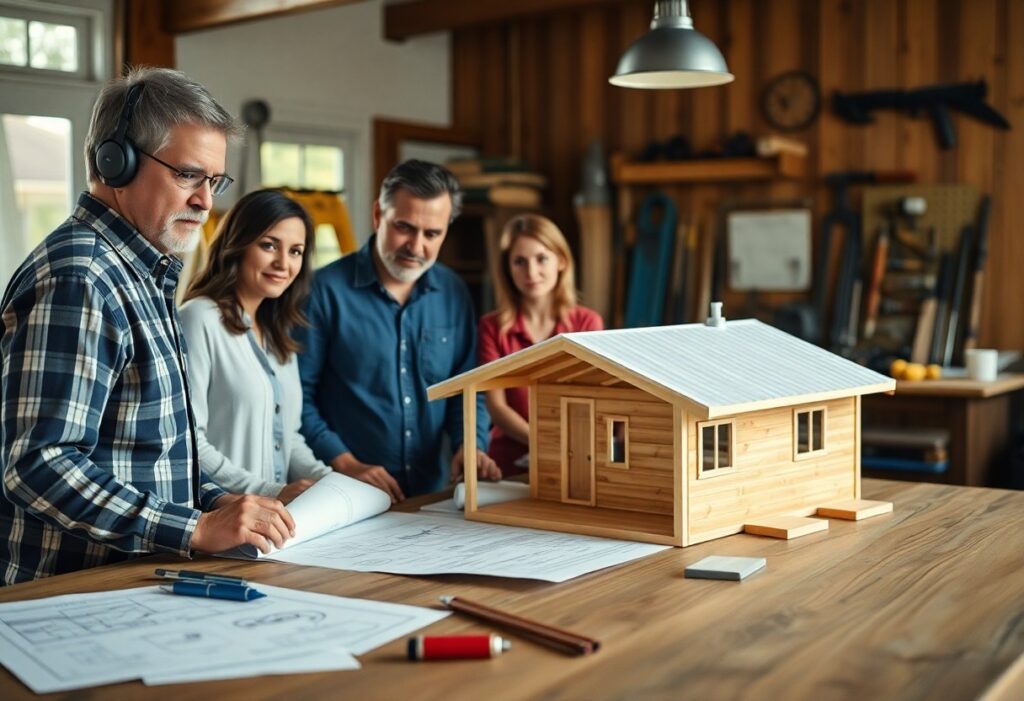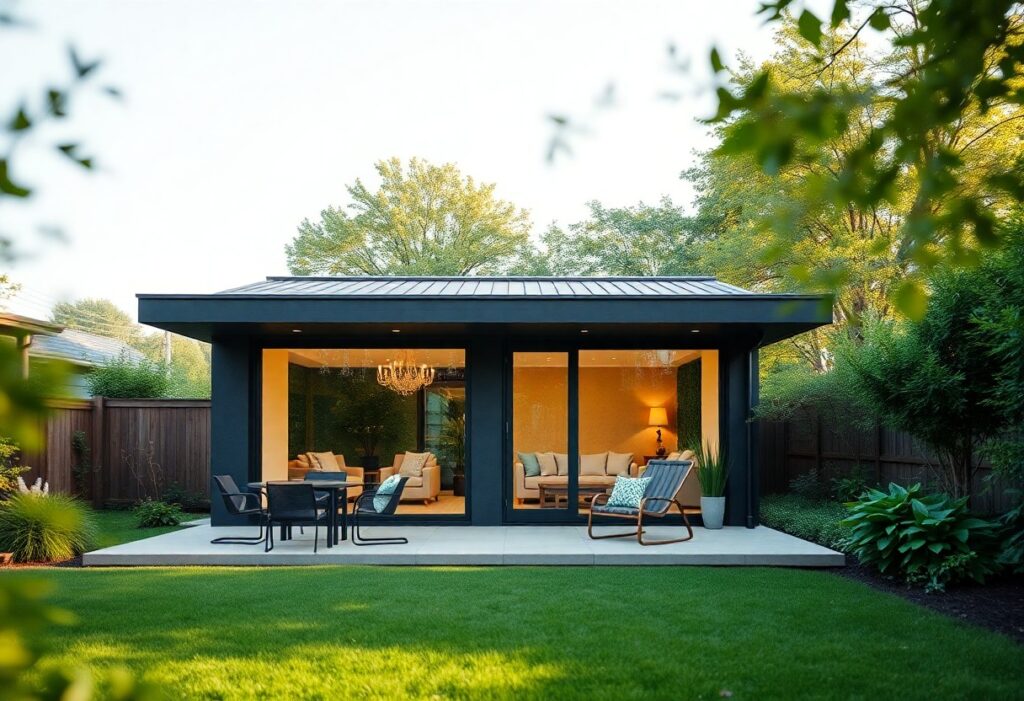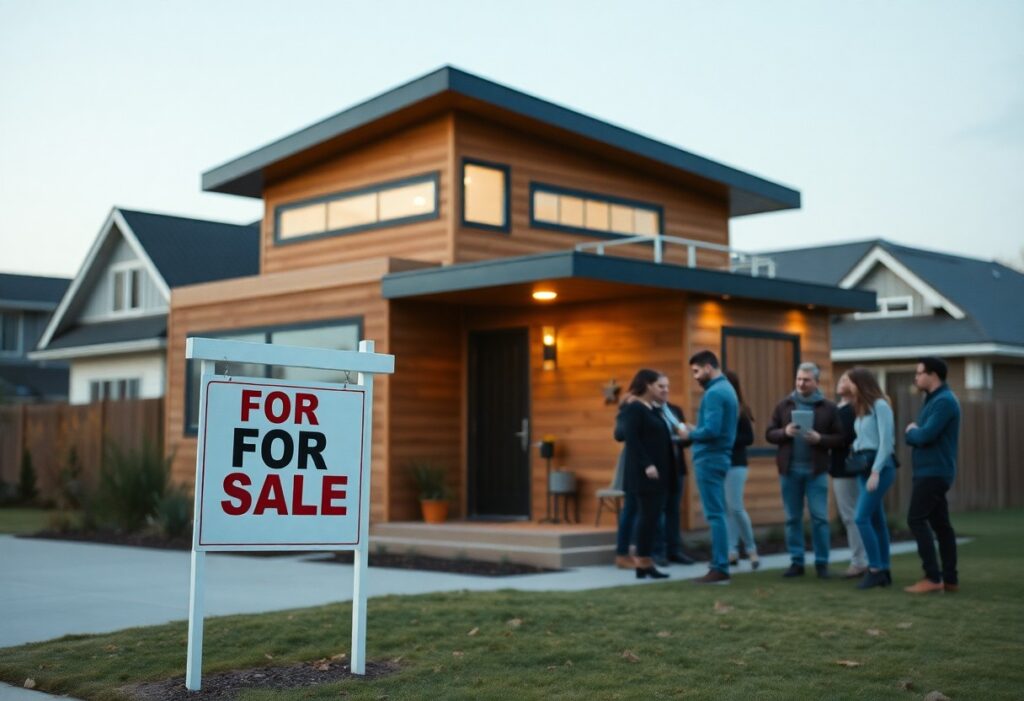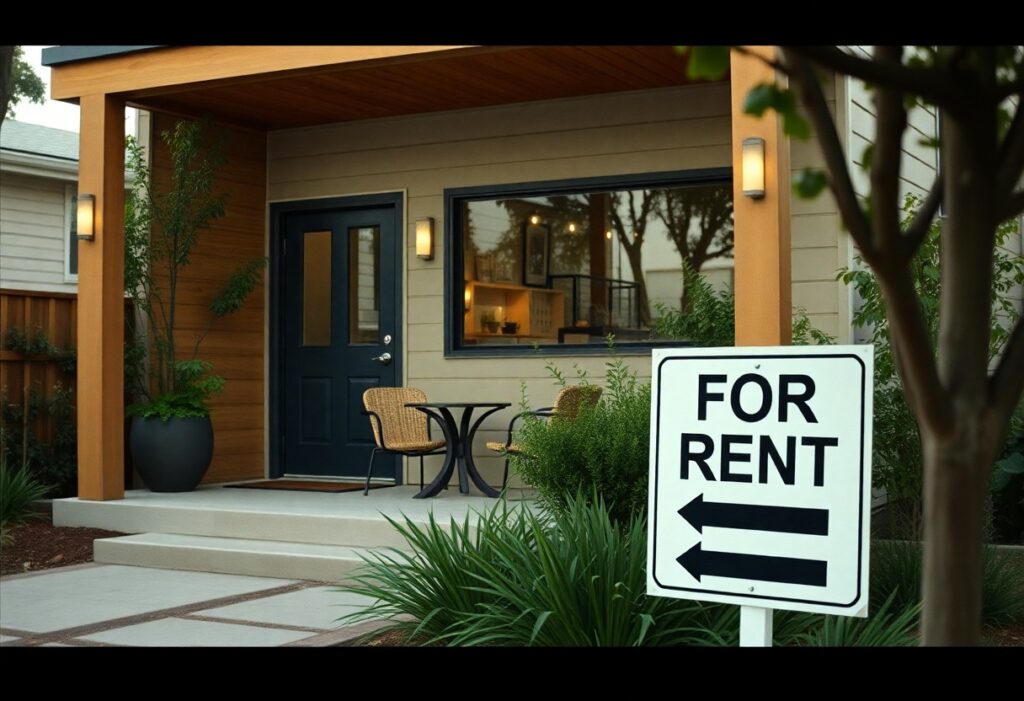With the increasing demand for housing in Orange County, converting your garage into an Accessory Dwelling Unit (ADU) can be a beneficial investment. Not only does it provide you with extra living space, but it can also generate rental income or serve as a suitable home for family members. This guide will walk you through the key aspects of the conversion process, including necessary permits, design considerations, and potential challenges to ensure you make the most of your space while adhering to local regulations.
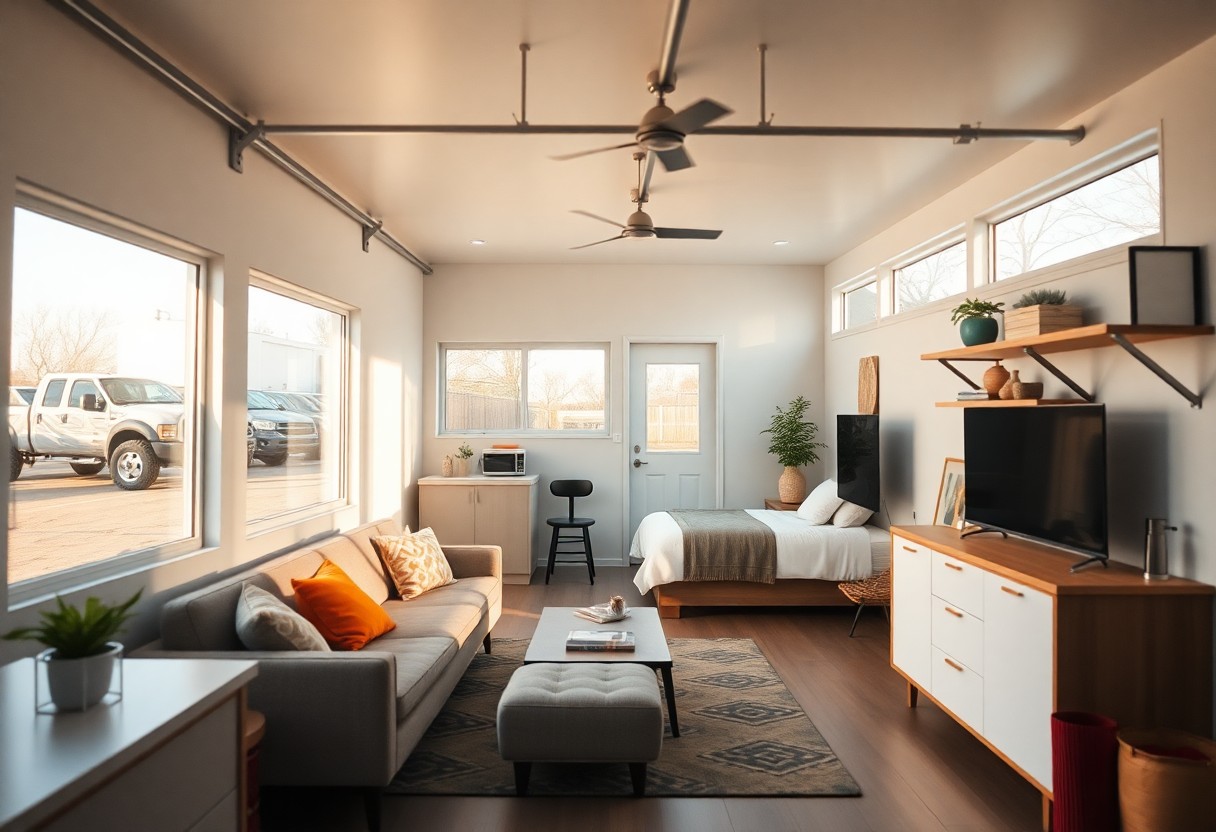
Key Takeaways:
- Understanding ADU Regulations: Familiarize yourself with Orange County’s specific regulations and permitting requirements for converting your garage into an Accessory Dwelling Unit (ADU).
- Design Considerations: Plan your layout effectively, ensuring your converted garage maximizes space and functionality while adhering to local building codes.
- Utility Access: Assess the need for plumbing and electrical modifications to accommodate your ADU, as garages often lack the necessary infrastructure.
- Potential Costs: Budget for your garage conversion by considering the expenses related to construction, permits, and any upgrades needed for compliance with ADU standards.
- Long-term Benefits: Recognize the advantages of having an ADU, including potential rental income and increased property value, which can be particularly beneficial in the Orange County market.
Understanding Accessory Dwelling Units (ADUs)
For homeowners in Orange County, Accessory Dwelling Units (ADUs) offer versatile living space solutions. These self-contained units can serve various purposes, from providing rental income to accommodating family members. With recent changes in legislation, converting existing spaces into ADUs has become increasingly popular, allowing you to maximize your property’s potential.
Definition and Types of ADUs
An ADU is a secondary housing unit on a property, providing independent living facilities. They can take various forms, including:
| Detached Units | Free-standing structures, often resembling small homes. |
| Attached Units | Convert existing spaces, such as garages or basements. |
| Junior ADUs | Smaller units, typically created from existing square footage. |
| Converted Spaces | Turning underutilized areas into full-fledged living spaces. |
| Modular ADUs | Prefabricated units that can be quickly installed on-site. |
After exploring the various types of ADUs, you’ll be better equipped to decide which option suits your needs.
Benefits of Garage Conversions
ADUs not only enhance your property value but also provide additional income potential through rental opportunities. Converting your garage into an ADU can create a private living space that accommodates guests or family members while maintaining independence. It optimizes your space and can be a more affordable option compared to traditional housing.
But before entering into a garage conversion, weigh the positive aspects against potential challenges. A thoughtfully designed ADU can lead to significant financial gains, offering you an avenue for passive income. However, ensure you thoroughly understand local zoning laws and design regulations to avoid costly setbacks. The conversion process can also enhance your property’s livability, creating a welcoming atmosphere for friends and family.
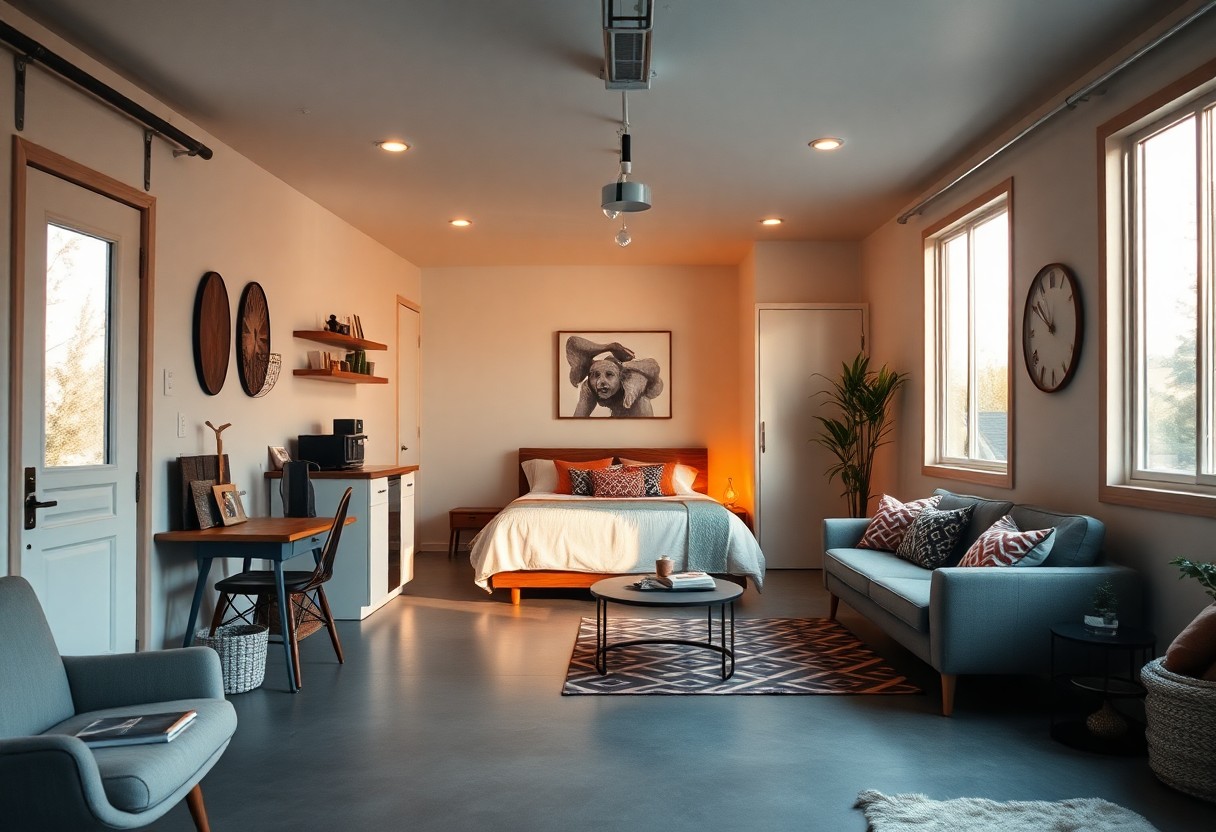
Planning Your Garage Conversion
Some crucial steps to consider when planning your garage conversion include evaluating your existing space, determining your goals, and assessing potential challenges. Taking the time to identify your needs and how best to utilize your garage will help ensure you create an ADU that complements your lifestyle while adhering to local regulations.
Zoning and Permit Requirements
Garage conversions in Orange County require thorough attention to zoning and permit requirements. You must verify that your property is zoned to allow for an accessory dwelling unit (ADU). This often involves checking local building codes and securing appropriate permits to avoid costly fines or issues down the line.
Budgeting and Financing Options
After identifying your goals for the conversion, it’s crucial to establish a realistic budget and explore financing options available to you. Consider all costs, including design, labor, materials, and permits, to avoid overspending.
To create an effective budget, start by obtaining detailed quotes from contractors and including a buffer for unexpected expenses. You may explore various financing options such as home equity loans or renovation mortgages that could help fund your project. Additionally, consider local grants or incentives aimed at supporting ADU development, as these can significantly reduce your overall costs. Investing time in careful planning and research can help you make informed financial decisions while ensuring you stay within your budget.
Design Considerations
Now that you’ve decided to convert your garage into an ADU, it’s crucial to consider various design aspects. Your vision should align with both your structural needs and the local regulations of Orange County. Implementing thoughtful design will not only enhance functionality but also improve the aesthetic appeal of the space, making it a welcoming home for you or future renters.
Layout and Space Optimization
Among the key factors affecting your ADU’s success is the layout. It’s important to maximize every square foot by incorporating multifunctional furniture and open floor plans. Think about the natural flow of movement within the space to create an inviting and efficient environment.
Essential Amenities and Features
Essential to your ADU’s design are the amenities and features that cater to comfortable living. These should include a kitchen, bathroom, and utility space, ensuring that your ADU feels like a true home. Each element must be carefully selected to balance aesthetics with practicality.
A well-thought-out design plan will incorporate the most important amenities you’ll need. Focus on enhancing your living experience with features like a fully functional kitchen that provides adequate storage and counter space. Don’t overlook extra details, such as installing a compact washing machine and dryer setup. Brighten up the space using large windows for natural light while ensuring ventilation for comfort. Prioritize items that ensure safety and compliance with local codes, paving the way for a seamless conversion process that maximizes both function and comfort.
Renovation Process
To successfully convert your garage into an ADU, it’s vital to follow a structured renovation process. Start by assessing your garage’s current condition and determining what changes are needed. You’ll want to focus on insulation, plumbing, electrical, and design elements that comply with local regulations. For a comprehensive guide, check out The Ultimate Garage Conversion ADU Guide: A Step-by- …. Proper planning ensures a smooth transition from garage to livable space.
Hiring Professionals vs. DIY
The decision to hire professionals or take the DIY route for your garage conversion should be based on your skill level, budget, and timeline. While DIY can save money, hiring professionals ensures quality work and adherence to local building codes, particularly important in Orange County.
Common Challenges and Solutions
Behind every garage conversion are challenges that you may face, including zoning restrictions, permits, and budgeting issues. Navigating these complexities requires careful planning and resourcefulness.
In fact, overcoming challenges like zoning limitations can be a daunting task. You might struggle with obtaining the necessary building permits from local authorities in Orange County. Additionally, budget overruns can derail your project if you’re not vigilant. A well-prepared plan that includes a buffer for unexpected expenses can help you stay on track. Engaging a reliable contractor can also mitigate risks and provide you with experienced insights that save both time and money during the conversion process.
Legal and Insurance Considerations
Your garage conversion into an Accessory Dwelling Unit (ADU) requires careful attention to legal and insurance factors. Ensuring compliance with local zoning laws and building codes is vital for a successful project, particularly in areas like Orange County. Be sure to research and understand these regulations to avoid potential fines or legal issues.
Compliance with Building Codes
By understanding local building codes, you can ensure that your ADU meets the necessary safety standards and regulations. In Orange County, these codes dictate everything from structural integrity to fire safety, so it’s important to stay informed and consult with professionals when planning your conversion.
Updating Your Home Insurance
Codes imply that you must update your home insurance to reflect the changes resulting from your garage conversion. Even a minor change like converting a garage into an ADU can affect your policy, and failing to notify your insurance provider could lead to a denial of coverage in the event of a claim. Ensure that your new ADU is adequately covered and consider additional liability coverage, as having renters or guests can increase your risk exposure. Clear communication with your insurance agent will help you navigate these updates effectively.
Maintenance and Upkeep of Your ADU
Once again, keeping your ADU in great condition is important for its longevity and functionality. Regular maintenance tasks will ensure that your unit remains a valuable asset to your property. This commitment to upkeep not only enhances your living space but also affects property value, making it important in the long run. Take proactive measures to keep your space clean and well-maintained throughout the year.
Routine Maintenance Tips
Any property owner should prioritize maintenance to ensure your ADU remains in top shape. Follow these tips:
- Inspect plumbing regularly for leaks.
- Check electrical systems and outlets.
- Clean gutters and exterior drains.
- Maintain HVAC systems seasonally.
- Paint and seal cracks to prevent water damage.
Perceiving these tasks as an ongoing commitment will help you maintain your investment effectively.
Enhancing Property Value
For homeowners in Orange County, a well-maintained ADU can significantly enhance your property’s overall value. Investing in the upkeep and improvement of your unit means you are not only creating a comfortable living space but also increasing equity by making your home more appealing to prospective buyers.
Value is derived from elements such as presentable aesthetics, energy efficiency, and well-planned layouts. A clean and functional ADU not only attracts potential renters but also boosts your home’s marketability. Failing to maintain these aspects can lead to depreciation over time, so investing in routine inspections and timely upgrades is important for preserving and maximizing your property’s worth.
1. Understand local zoning regulations for garage conversions.
2. Check permit requirements specific to Orange County.
3. Assess structural integrity and necessary renovations.
4. Consider design options for maximizing space and comfort.
5. Budget for construction costs and potential expenses.
6. Explore financing options for the conversion project.
Summing Up
Drawing together all the important information about converting your garage into an ADU, you can see that this project opens many doors for increased living space and potential rental income in Orange County. By understanding zoning laws, design considerations, and financing options, you set the stage for a successful transformation. With the right planning and execution, your garage can evolve into a functional and stylish accessory dwelling unit, adding both value to your property and convenience to your lifestyle.
FAQ
Q: What are the requirements for converting my garage into an ADU in Orange County?
A: In Orange County, converting your garage into an ADU involves adhering to specific local zoning laws and building codes. You will typically need to obtain a building permit and ensure that your garage meets certain structural requirements. Additionally, your ADU must comply with standards related to fire safety, plumbing, and electrical installations. It’s important to check with the local planning department to ascertain lot size, setback rules, and parking requirements, as these can vary between different areas within Orange County. Consulting with a licensed contractor who is familiar with ADU conversions can also streamline the process.
Q: What are the potential costs involved in a garage conversion in Orange County?
A: The cost of converting a garage into an ADU in Orange County can vary significantly based on factors such as the size of the garage, the extent of renovations needed, and the specific finishes you choose. On average, homeowners can expect to spend anywhere from $20,000 to $60,000 or more for a complete conversion, which may include structural changes, plumbing, electrical work, and permits. Additional expenses, such as furnishings and landscaping, should also be considered. It’s advisable to obtain quotes from several contractors and budget for unexpected costs during the conversion process.
Q: What are the benefits of converting my garage into an ADU in Orange County?
A: Converting your garage into an ADU can provide several benefits. Firstly, it offers a potential source of rental income, which can offset your mortgage or other housing costs. Secondly, an ADU can serve as additional living space for family members, such as elderly parents or young adults, providing privacy and independence while keeping loved ones close. Moreover, ADUs can add value to your property, making it more attractive to future buyers. Given the housing demand in Orange County, an ADU can also help address the local housing shortage, fostering community growth. Finally, such conversions are often seen as environmentally friendly solutions, promoting the efficient use of existing structures.

